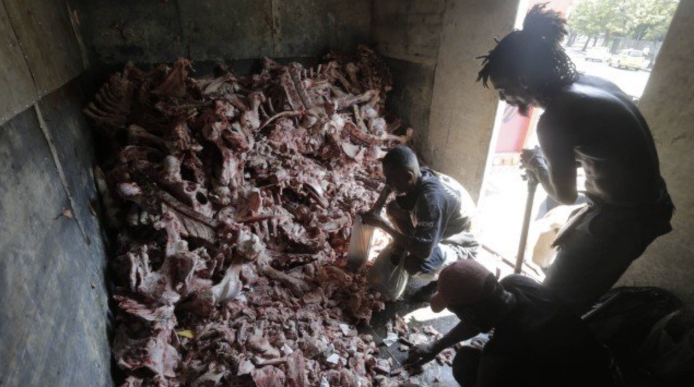Hunger desolates the streets of Rio
- André de Botton
- Oct 4, 2021
- 3 min read

The desperate reality of Rio de Janeiro’s impoverished citizens plea for food, as an economy in recession and rampant inflation places Brazil back on the World Hunger Map.
Local newspaper EXTRA front-page headline entitled “the pain of hunger”, harnessed national and international attention with its striking description of the extent of hunger present in a seemingly developed area of Rio de Janeiro. Locals waited for hours in a fraught que in an attempt to garner some nourishment of the left-over meat from groceries and butcheries. The donated produce of raw bone remains, which previously were discarded or given away to be used in dog food or in soap manufacturing, are now highly sought after by poverty-stricken people who have no other means of sustaining themselves. What was once deemed a byproduct of the meat industry, is now being sold in some supermarkets which realized the increased demand for these meat parts. As street dwellers yearn for the very leftovers they once discarded, it has become quite clear that Rio and Brazil are back on the world hunger map.
Progressive social policies in the early 2000s were hailed as extremely effective in tackling the widespread food insecurity present throughout the country, leading to Brazil being removed from the world hunger map in 2013 with less than 3.5% of the population suffering from severe hunger. Eight years later, still recovering from the deep economic recession caused by the widespread presence of Covid-19 in the country, Brazil has more than 9.5% of the population in the severe hunger bracket, substantially more than the 5% threshold established by the WFP (World Food Program). That represents over 20 million people who do not know when their next meal is going to be, or even if they will have one. The degrading conditions to which Brazilian society has had to submit itself reflects the ample incompetency of Bolsonaro to lead, ironically, one of the biggest exporting countries of grain and meat in the world.
His direct involvement in publicly denouncing state authorities which decreed lockdowns whilst eliciting “freedom” demonstrations from his limited number of supporters, not only affected the people’s adherence to those lockdowns, but it also hampered the long term positive economic aspects of more stringent regulations. The results were enduring, half-hearted local lockdowns (in the absence of a coordinated national response) which led to the worst of both worlds. The pandemic was not adequately curtailed while at the same time the economy sunk into a lasting recession. A stagnating economy coupled with extensive inflation, known as stagflation, is now observed, with the number of people unemployed hitting 14% just as inflation rose to 10%.
Last year, during the first wave lockdown, companies and individuals alike emphasized the importance of philanthropic donations during this time of crisis so that residents in vulnerable areas “do not starve.” This empathetic nature alongside the government’s emergency stimulus check of $120 monthly, actually ended up substantially lifting people out of poverty. Now in 2021, not only have private donations decreased to pre-pandemic standards as vaccination rollouts occur, but the government checks also ended simultaneously. Leaving citizens not only empty-handed, but half-starved. All these factors contributed to the convoluted chaos we observe today in the streets of Rio, and Brazil, as desperate residents try to get their hands upon any scraps they can find. The squalid conditions encountered are best described by a Rio supermarket worker, who explains how “Before, people came through here and asked for a piece of bone to give to their dogs. Today they beg for some bone to prepare a meal. My heart aches knowing this.”
We do not know when (or if) the economic outlook will improve any time soon for Brazil, but undoubtedly measures need to be taken to tackle this ever-growing problem; and soon. Hunger waits for no legislation to pass, and it's already one foot in the door. Normalizing the most basic need to eat not being met, is not only condemning millions to suffer, but it’s also perpetuating a system of inequalities present in one of the most resourceful countries in the world.
If you would like to help, the NGO Instituto Phi, where I volunteered during the summer and can personally vouch for, is collecting funds to distribute basic food packs to families in need in the greater area of Rio de Janeiro. Please click the link below and donate:





Comments